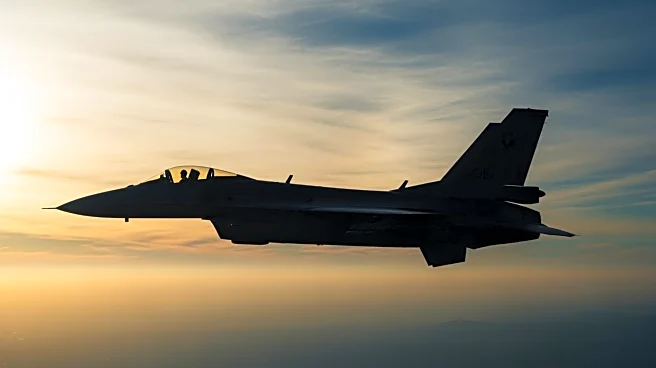What's Happening?
CIA Director John Ratcliffe has publicly supported President Trump's assertions that Russia and China are conducting low-yield nuclear tests. Ratcliffe's statement, posted on his personal X account, aligns
with U.S. assessments from 2019 by the Defense Intelligence Agency. These tests, which involve small nuclear explosions, are generally banned under the Comprehensive Nuclear Test Ban Treaty, to which the U.S., China, and Russia are signatories but have not ratified. The CIA has declined to comment further on Ratcliffe's statement. President Trump has expressed a desire to resume U.S. nuclear testing, citing other countries' activities as justification. The U.S. has not conducted above-ground nuclear tests since the 1960s, and the last underground test was in 1992.
Why It's Important?
The potential resumption of U.S. nuclear testing could have significant implications for global nuclear nonproliferation efforts. If the U.S. resumes testing, it may prompt other countries to follow suit, potentially leading to an arms race. This development could strain international relations, particularly with countries like China and Russia, who are also signatories to the Comprehensive Nuclear Test Ban Treaty. Additionally, the move could impact domestic and international perceptions of U.S. commitment to arms control agreements. The decision to resume testing may also influence U.S. defense policy and military strategy, affecting stakeholders in the defense industry and related sectors.
What's Next?
If the U.S. proceeds with nuclear testing, it may face diplomatic backlash from other nations and international organizations advocating for nuclear disarmament. The decision could lead to increased tensions with countries like China and Russia, potentially affecting broader geopolitical dynamics. Domestically, the move may spark debate among policymakers, defense experts, and the public regarding the necessity and implications of resuming nuclear tests. The U.S. government may need to engage in diplomatic efforts to mitigate international concerns and justify its actions on the global stage.









